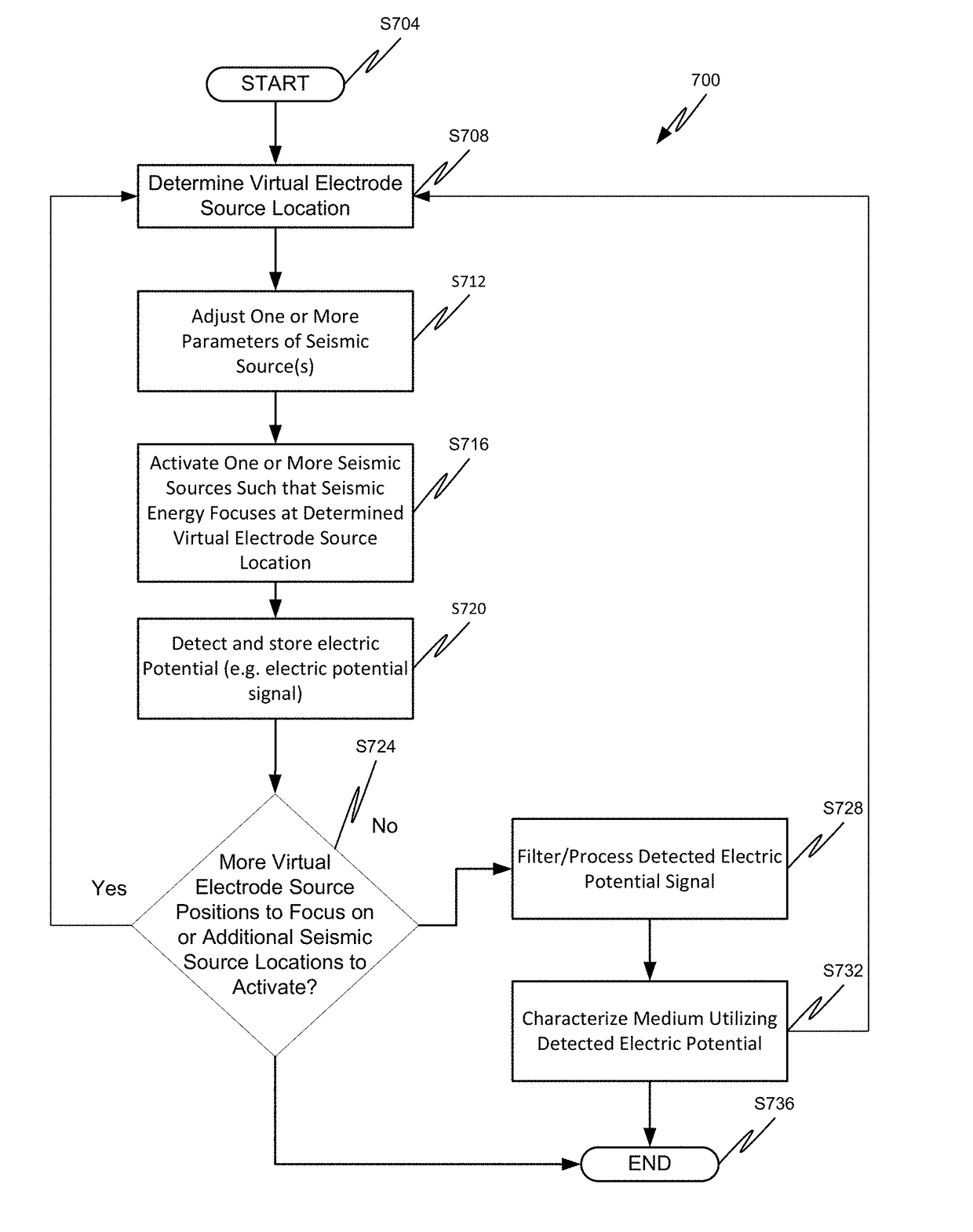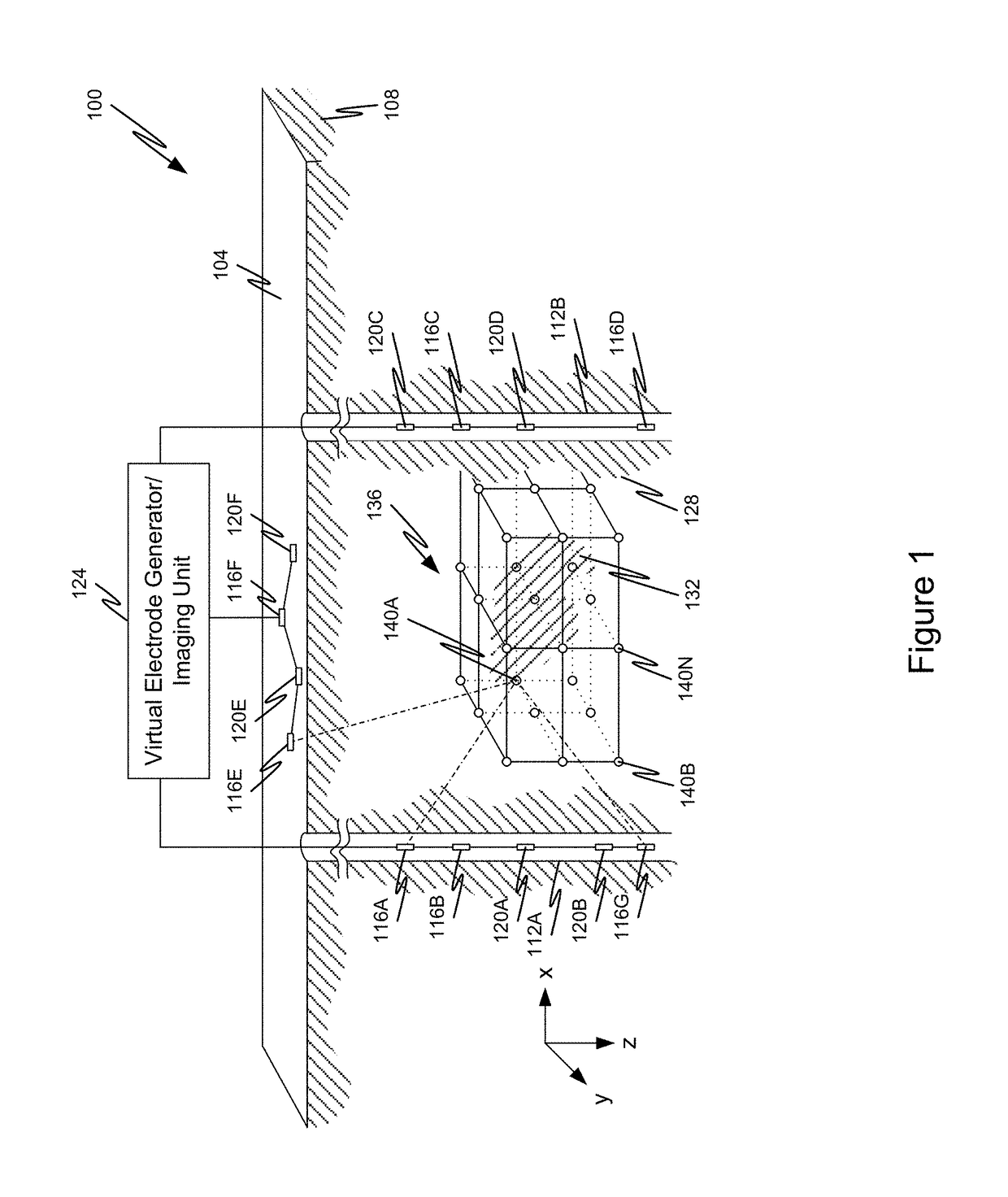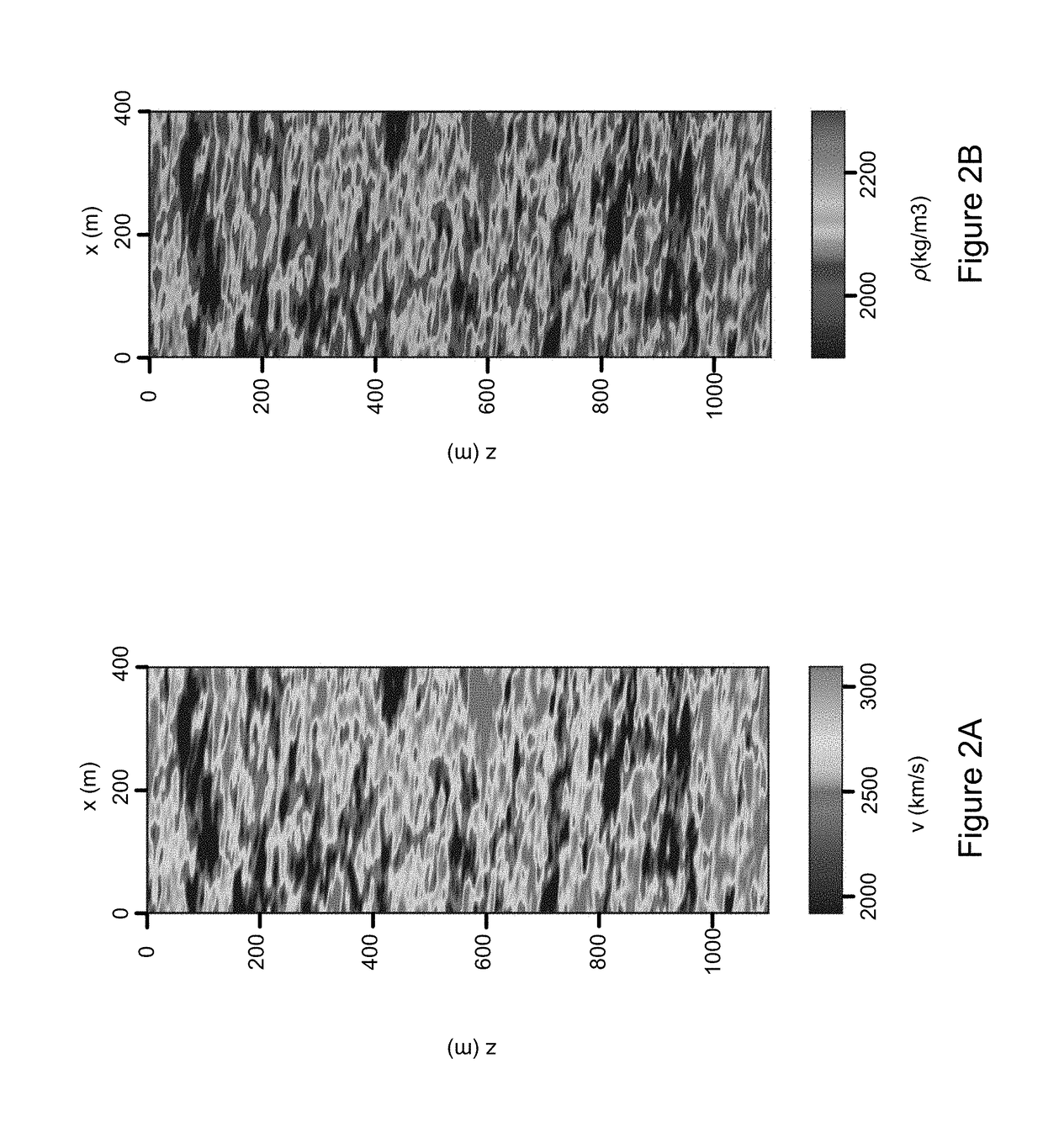Virtual electrode current injection using seismic focusing and seismoelectric conversion
a current injection electrode and seismoelectric technology, applied in seismic energy generation, geological measurements, instruments, etc., can solve the problems of limiting the expression of seismoelectric effects, complicating the use of seismoelectric effects in geophysical exploration and characterization, and electromagnetic disturbances, so as to increase the robustness and resolution of electrical resistivity tomography
- Summary
- Abstract
- Description
- Claims
- Application Information
AI Technical Summary
Benefits of technology
Problems solved by technology
Method used
Image
Examples
Embodiment Construction
[0033]The ensuing description provides embodiments only, and is not intended to limit the scope, applicability, or configuration of the claims. Rather, the ensuing description will provide those skilled in the art with an enabling description for implementing the embodiments; it being understood that various changes may be made in the function and arrangement of elements without departing from the spirit and scope of the appended claims.
[0034]Furthermore, while embodiments of the present disclosure will be described in connection with electrical resistivity tomography, it should be appreciated that embodiments of the present disclosure are not so limited. In particular, embodiments of the present disclosure may be applied to devices and imaging processes in which the electrical potential itself is utilized to provide one or more interpretations and / or make one or more observations regarding a heterogeneous medium. For example, embodiments of the present disclosure may include an ele...
PUM
 Login to View More
Login to View More Abstract
Description
Claims
Application Information
 Login to View More
Login to View More - R&D
- Intellectual Property
- Life Sciences
- Materials
- Tech Scout
- Unparalleled Data Quality
- Higher Quality Content
- 60% Fewer Hallucinations
Browse by: Latest US Patents, China's latest patents, Technical Efficacy Thesaurus, Application Domain, Technology Topic, Popular Technical Reports.
© 2025 PatSnap. All rights reserved.Legal|Privacy policy|Modern Slavery Act Transparency Statement|Sitemap|About US| Contact US: help@patsnap.com



